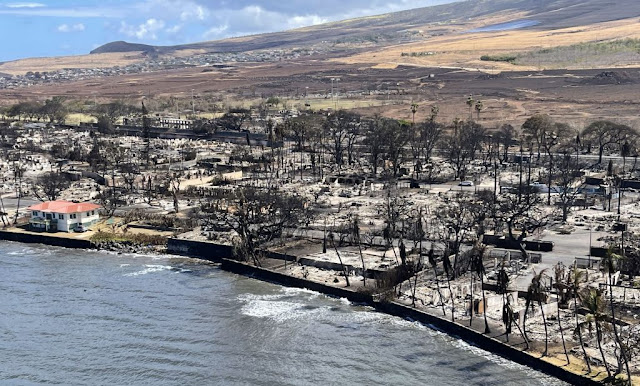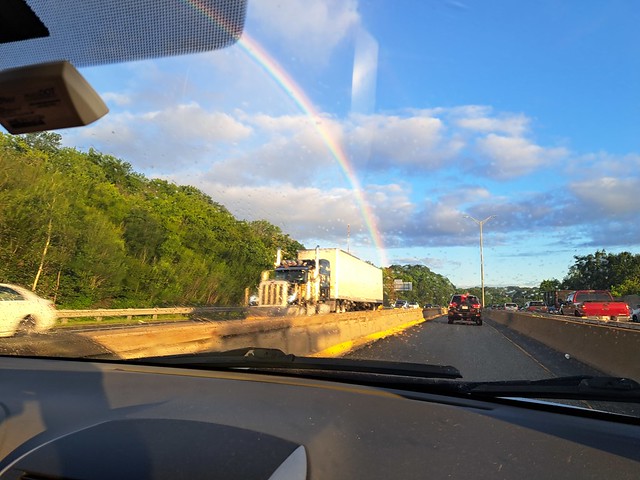
Damage in Lāhainā village Maui. Photo: Hawai‘i Department of
Land and Natural Resources via Big Island Now
NOTE: This post originated in August 2023, a couple of weeks after the fires; see below for an August 2024 update.
Recovery operations are still underway in Maui as an important debate unfolds. It is unseemly to enjoy a vacation when bodies of victims are still being found, and the care and feeding of tourists diverts resources that may be needed by those in need of aid.
Canceling vacations, however, damages the economy and denies income to local workers who need funds now more than ever. For this reason, as reported by NPR this morning, Maui County tells tourists to come back — just stay out of the burn zone, even though officials had been asking people to stay away just a couple of days ago.
One one level, this story is a worthwhile examination of a real conundrum faced by those who have vacations planned on the island in coming days or weeks. I will never being staying at the Ritz in Maui, but I am fortunate enough to travel in such a way that I might face this exact circumstance some day.
On another level, though, the story could be entitled "The Fragility of Tourist Economies." We talk about tourism or other industries as "good for the economy" without considering what this might actually mean. A "good" economy would give people not only a paycheck but also the ability to take some time off to recover from trauma.
The tourist economy provides almost no resilience to the vast majority of workers on which it relies. This observation is not limited to tourism, of course. The social safety net is frayed to the point that self-care has become a luxury.
Helping
Whatever our thoughts on the economy of tourism, of course, outside help is needed. I chose to support the efforts of Convoy of Hope, because a friend who spends a lot of time in Hawai'i and with the national leaders of this organization recommend it.
Lagniappe
From fire to water: a year after the fires, NPR reports on difficult decisions about whether and how to rebuild, particularly in the immediate vicinity of rising oceans. This highlights the irony of a global crisis that threatens both fire and water, sometimes in the same locations. I will be using this story in my Land Protection class, because it provides an unusual example of how a land trust can be used as part of disaster planning.

